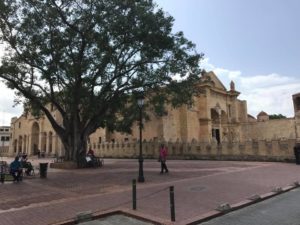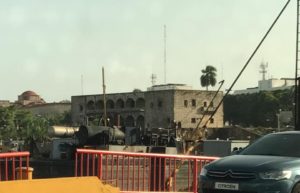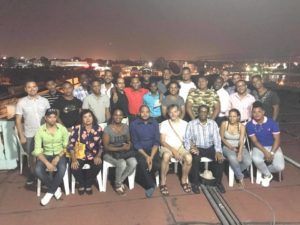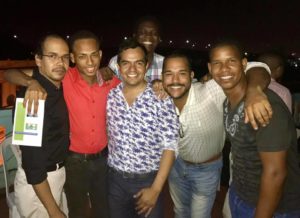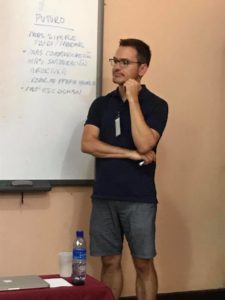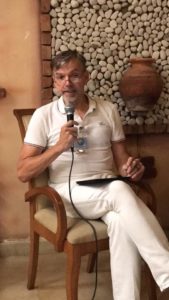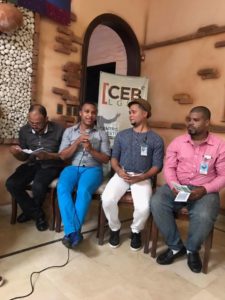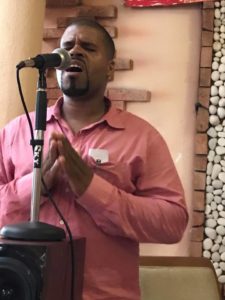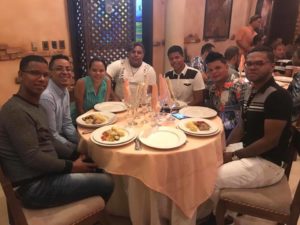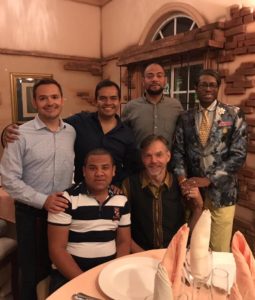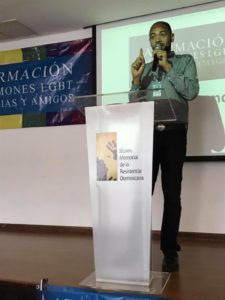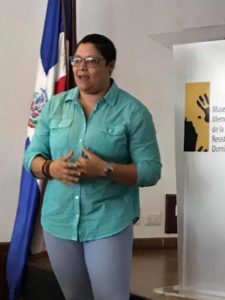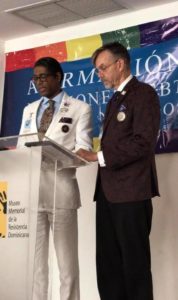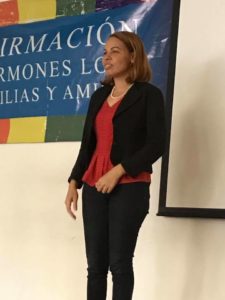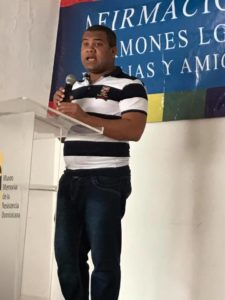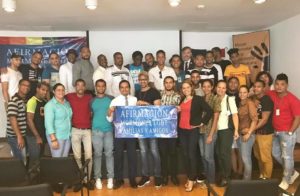Affirmation Makes History in the D.R.
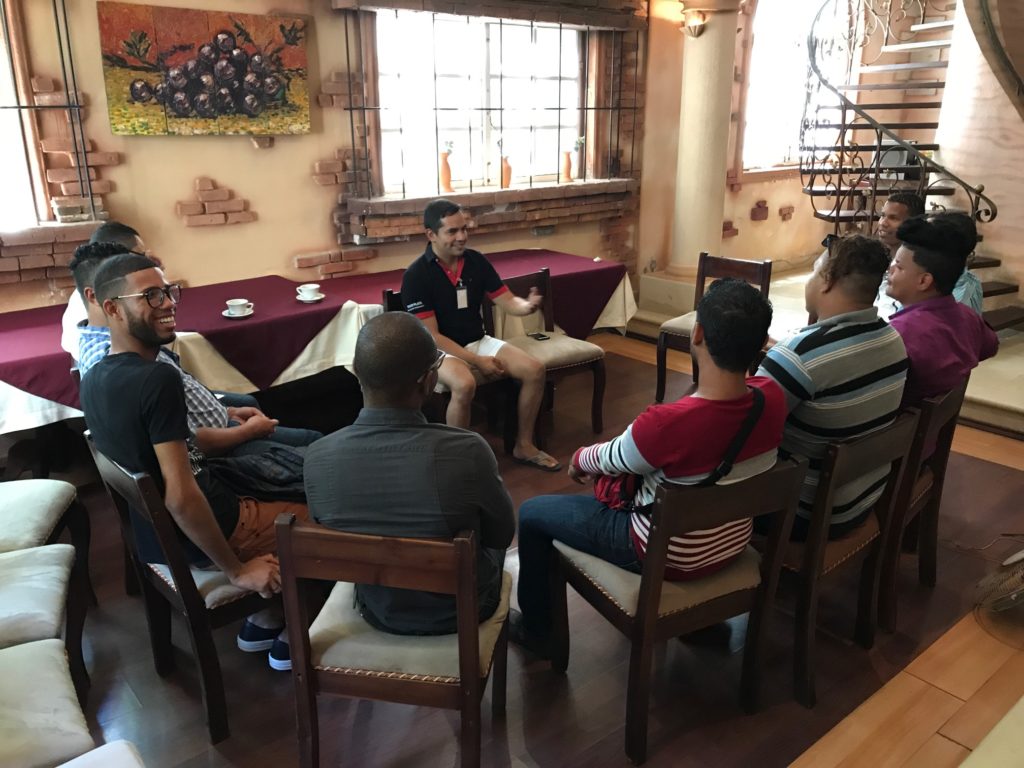
Affirmation’s first international conference in the Dominican Republic took place in the heart of the oldest section of the oldest European settlement in the Western Hemisphere, and it included representation from Haiti and Cuba.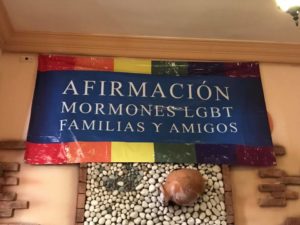
Santo Domingo was founded in 1496, is the final resting place of the remains of Christopher Columbus, and in many ways was the birthplace of “America.” There are over 130,000 Mormons in the D.R. The first LDS missionaries arrived there in 1978, the same year that Declaration No. 2 announced that priesthood and temple blessings would be available to all regardless of race. Without that declaration, missionary work would have been very difficult in this island nation where so many citizens are the descendants of African slaves.
Friday evening began with an icebreaker and social, where Affirmation members shared their stories. The D.R. chapter has approximately equal number of Mormons and non-Mormons, and includes individuals from a variety of faith backgrounds, including Evangelical, Pentecostal, Catholic and Jewish. There were deeply moving testimonies of God’s love and acceptance of us as LGBT people. John Rodriguez, the president of Afirmación Caribe (or Affirmation in the Caribbean), talked about the power and importance of prayer. John believes that LGBT people have an important role to play in modern-day spiritual renewal, not just in the LDS Church.
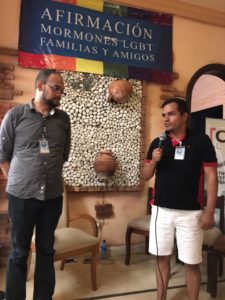
John Rodriguez, President of Afirmación Caribe and Adryan San Roman, Senior Vice President of Affirmation International
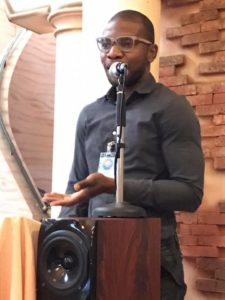
Gregory Maurice, LGBT activist from Haiti
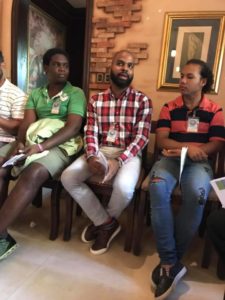
Affirmation members participating in a small group discussion about self-acceptance, led by Pedro Reyes and Estephania Hernandez of Estudios Biopsicosociales LGBTI, a Dominican organization for LGBT health and well-being
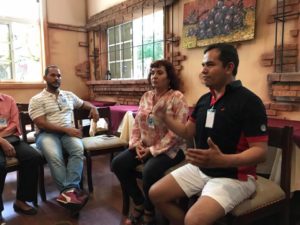
Adryan San Roman, Senior Vice President of Affirmation International, led discussions on finding one’s own spiritual path
Saturday there were beautiful talks, including from representatives of LGBT organizations in Haiti and the Dominican Republic working on issues of human rights and LGBT health and well-being. Following the talks, conference participants broke up into small groups where a series of conversations were had about self-acceptance, spirituality and family relationships.
After lunch, John Gustav-Wrathall, newly hired as Affirmation’s first full-time Executive Director, moderated a panel discussion on “Finding a Healthy Relationship with the Church.” Each of the panelists was in a different place in relation to the Church — out of the church, inactive, and active. When asked what helped them most to have peace and spiritual health, however, they all emphasized prayer, personal study, and trusting personal revelation.
The Saturday sessions ended with prayer and a heartfelt rendition of “As I Have Loved You,” in Spanish and then English.
During the Saturday evening dinner, John Rodriguez asked John and Göran Gustav-Wrathall, who happened to be celebrating their silver relationship anniversary that evening, to share what their 25 years together meant to them. John said, “For me, there is no salvation, no heaven without my husband.” Juan Manuel, the first member of Affirmation in Cuba, shared his testimony.
Affirmation leaders had been working for months to enable Juan Manuel to obtain a visa in order to come to the Dominican Republic conference. Juan converted to the LDS Church as a result of a contact with an Argentinian Mormon. The Church has no official presence in Cuba, and only a minimal, scattered membership. Juan Manuel has a strong testimony of the Gospel, and his tiny branch became the center of his life, until they excommunicated him. When he contacted Affirmation, he was really lonely and hurting, and could barely believe his luck at finding an organization seemingly tailor made for him. Experiencing Affirmation after everything he had been through was a foreshadowing of Heaven for him.
The Sunday morning devotional and testimony meeting were held at the Museo de la Resistencia, a museum dedicated to the history of freedom and democracy in the Dominican Republic. Major themes of the talks were the importance of prayer and living lives filled with charity so that we can be close to the Spirit and be spiritually and emotionally resilient.
